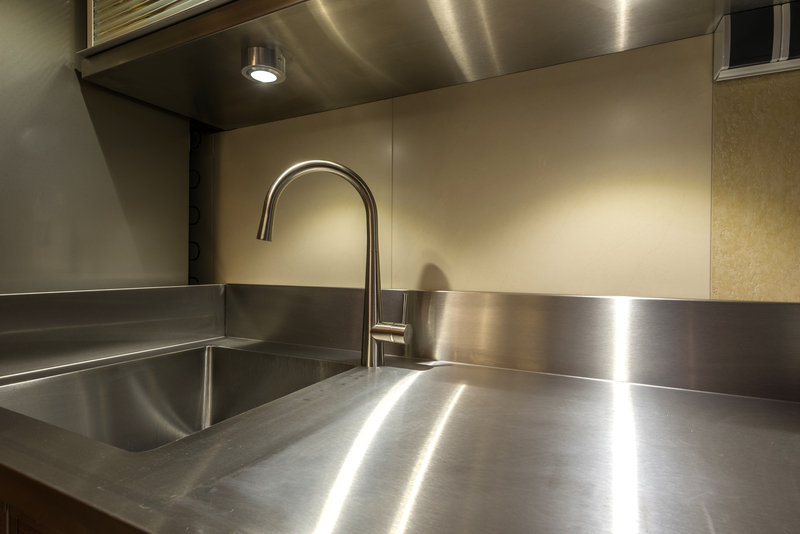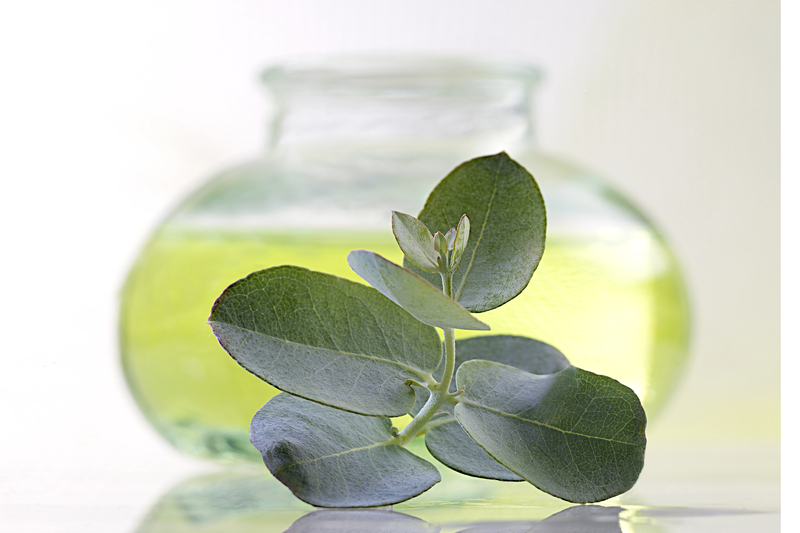Ultimate Guide to Oven Cleaning
Posted on 03/04/2025
A clean oven is essential for both the taste of your food and the lifespan of your appliance. While the task can seem daunting, the right techniques and products can make it an easier and even satisfying chore. This ultimate guide to oven cleaning will cover everything you need to know from start to finish, ensuring your oven remains in top-notch condition.
Why Oven Cleaning is Important
Many people overlook the importance of keeping their ovens clean. However, regular oven maintenance can have significant benefits:
- Improved Efficiency: A clean oven heats up more quickly and consistently, improving energy efficiency.
- Better-Tasting Food: Residues and old food can impart off-flavors to your meals.
- Longer Lifespan: Regular cleaning can prevent malfunctioning and extend the life of the appliance.
- Safety: Built-up grease and food particles can pose a fire hazard.

Preparation and Tools Needed
Before diving into the task, gather these essential tools and materials:
- Rubber gloves
- Protective eyewear
- Baking soda
- White vinegar
- Dish soap
- Sponges and scrub brushes
- Microfiber cloths
- Plastic or silicone spatula (for gentle scraping)
- Spray bottle
Step-by-Step Oven Cleaning Methods
1. Self-Cleaning Mode
Many modern ovens come with a self-cleaning feature that uses high heat to turn grease and food particles into ash, which can be wiped away.
- Step 1: Remove any racks and trays from the oven.
- Step 2: Activate the self-cleaning mode as per the manufacturer's instructions.
- Step 3: Once the cycle is complete and the oven has cooled, wipe away the ash with a damp cloth.
2. Natural Cleaning Method
If you prefer a chemical-free approach, baking soda and vinegar can be incredibly effective.
- Step 1: Remove the oven racks and soak them in soapy water.
- Step 2: Make a paste using half a cup of baking soda and a few tablespoons of water. Spread this paste on the oven's interior surfaces, avoiding heating elements.
- Step 3: Let it sit overnight or for at least 12 hours.
- Step 4: Spray white vinegar over the baking soda paste. The mixture will foam, loosening the grime.
- Step 5: Wipe out the loosened grime with a damp cloth.
3. Commercial Oven Cleaners
Commercial oven cleaners are highly effective but should be used with caution as they contain strong chemicals.
- Step 1: Follow the product's instructions carefully, ensuring adequate ventilation.
- Step 2: Wear rubber gloves and protective eyewear.
- Step 3: Spray the cleaner inside the oven, avoiding heating elements.
- Step 4: Allow it to sit for the recommended time, then wipe it away with a wet cloth.
Cleaning Oven Racks
Oven racks can be one of the trickiest parts to clean, but soaking them makes the job easier:
- Step 1: Fill your bathtub with hot water and a quarter cup of dish soap or 1/2 cup of laundry detergent.
- Step 2: Submerge the racks and let them soak overnight.
- Step 3: Use a non-abrasive scrub brush to remove any remaining grime.
- Step 4: Rinse and dry the racks before placing them back in the oven.
Ongoing Maintenance Tips
Maintaining a clean oven doesn't have to be arduous if you follow these tips:
- Wipe Spills Immediately: If food spills in the oven, wipe it up as soon as the oven cools down.
- Use an Oven Liner: These liners catch drips and can be easily removed and washed.
- Conduct Monthly Checkups: A monthly wipe-down can prevent the build-up that makes deep cleaning necessary.

Frequently Asked Questions (FAQs)
1. How often should I clean my oven?
The frequency of oven cleaning depends on how often you use it. For moderate use, a deep clean every three months is generally recommended, with minor clean-ups as needed.
2. Can I use aluminum foil as an oven liner?
While aluminum foil can catch drips, it can also affect heat distribution and potentially damage oven elements. Specialized oven liners are a safer option.
3. Is it safe to use commercial oven cleaners?
Commercial oven cleaners are effective but contain strong chemicals. Use them cautiously, following all safety instructions and ensuring proper ventilation.
Conclusion
Oven cleaning might not be the most glamorous household task, but it's undoubtedly one of the most essential. With the right techniques and a bit of elbow grease, you can keep your oven in pristine condition, maintain optimal performance, and ensure that every dish you prepare tastes its best. Whether you choose natural methods, rely on commercial products, or utilize your oven's self-cleaning mode, regular maintenance is the key to a cleaner, safer, and more efficient kitchen.
Latest Posts
Tips for Keeping Wood Floors Spotless
Weekly Cleaning: Top Advantages
Routine Carpet Cleaning: Expert Recommendations



